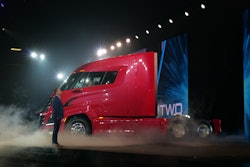Trucking news and briefs for Friday, Aug. 6, 2021:
Navistar will not be ordered to pay $30.8 million in damages to Tennessee-based Milan Express after a ruling by the state’s high court upheld an appellate court’s decision that vacated a lower court’s ruling.
In August 2017, Navistar was ordered to pay nearly $31 million to Milan, which had purchased 243 International ProStar tractors equipped with MaxxForce engines in 2011 and 2012. Milan alleged that Navistar knew its MaxxForce engines had defects but brought them to market regardless. The jury awarded the carrier $10.8 million in actual damages and $20 million in punitive damages for the problems the carrier experienced with the engines.
However, in August 2019, an appellate court tossed that decision, based on its interpretation of Tennessee’s so-called economic loss doctrine.
The Tennessee Supreme Court on Aug. 2 sided with the appellate court’s decision, but on separate grounds.
“The Court declined to adopt a broad exception to the economic loss doctrine and instead concluded that, where a fraud claim seeks recovery of only economic losses and is premised solely on alleged misrepresentations or nondisclosures about the quality of the goods that are the subject of a contract between sophisticated commercial parties, the economic loss doctrine applies,” the Court said in its opinion. “The Court found the quality and reliability of the trucks were matters which the parties could, and actually did, contract. Applying the economic loss doctrine in these circumstances is consistent with its historical underpinnings and with its central purpose of preserving the boundary line between tort and contract law.”
The Tennessee Supreme Court also ruled that the Tennessee Consumer Protection Act (TCPA) does not apply to commercial transactions, noting that the trucks sold to Milan were not “goods” as defined by the TCPA.








